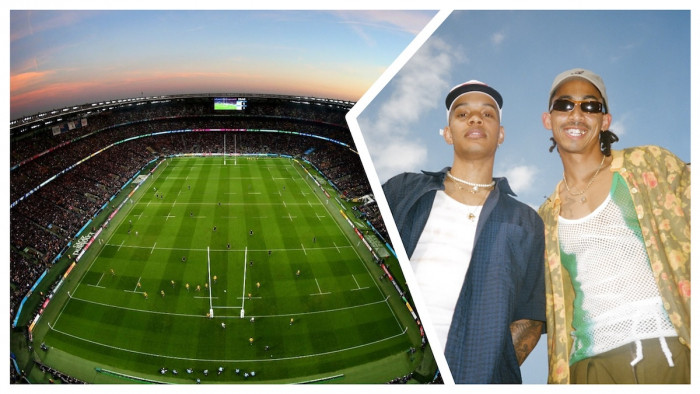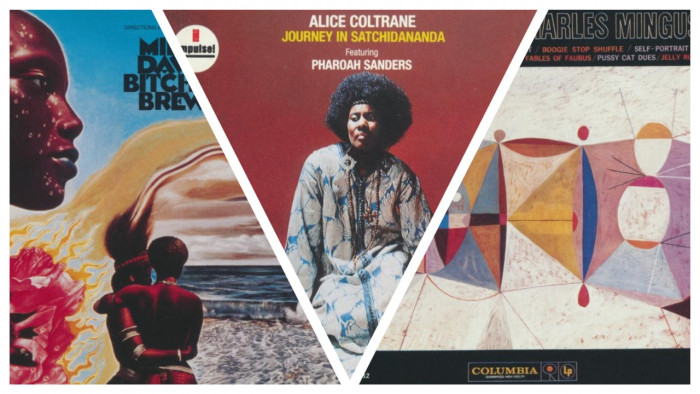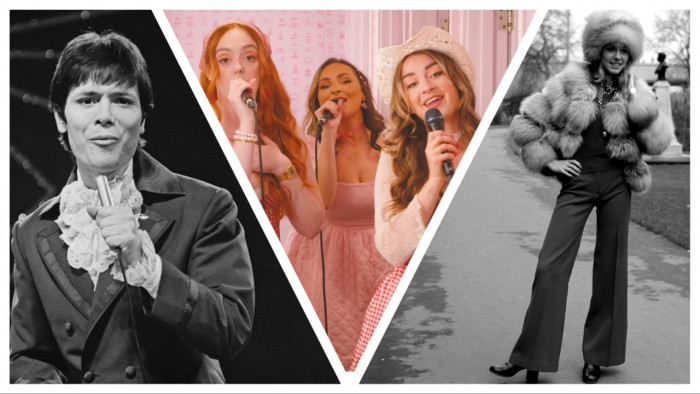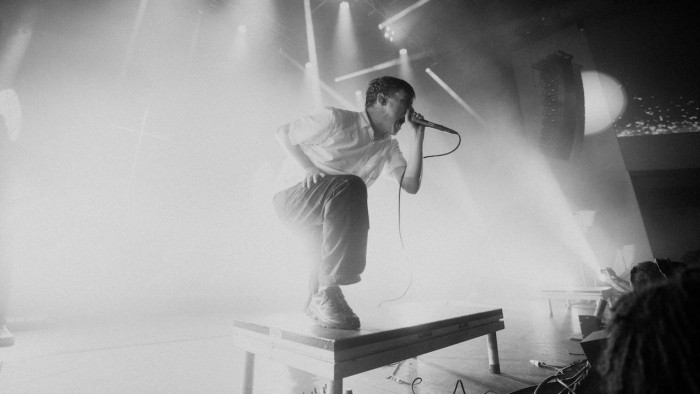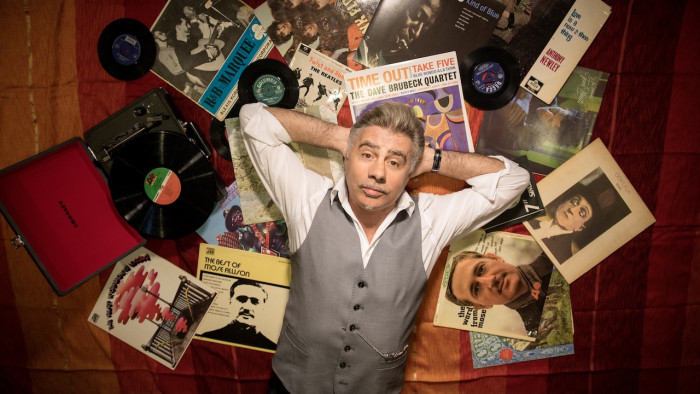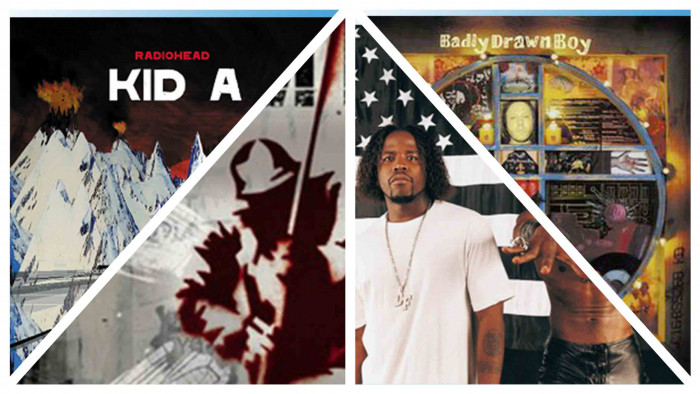You might hate Bono but you can't deny The Joshua Tree's brilliance
30 years on, U2's stadium-ready statement still holds up


I used to defend Bono, until he became indefensible.
I discovered U2 at the tender age of about 11, when I heard ‘Where The Streets Have No Name’playing at a family gathering and investigated further, eventually discovering that my dad owned the LP. Off I took it upstairs and repeatedly listened to it, before saving up pocket money to invest in the band’s back catalogue.
It was a good time to be a U2 fan; their most recent album was Zooropa – an album which confused the hell out of me when I first got it, but turned out to be the peak of their experimentalism, while I remember watching the video of their Zoo TV tour for the first time and having my tiny mind absolutely blown. To this day, I’m convinced it’s the greatest live show ever staged. It still looks sensational watching it now, it was like something beamed in from space back in 1993. Their rhythm section was rock solid, the Edge was a truly distinctive and inventive guitar player, Bono was an incredible frontman and they’d clearly blown the entire budget on making the set as amazing as possible.
Bono had put a few people’s backs up with the whole white-flag waving, grand political gesture stuff in the ‘80s, but Achtung Baby and Zooropa had kind of put that to bed with people admiring the fact they’d decided to poke fun at themselves and be sonically adventurous – whilst also writing some undeniable tunes in the process. It’s hard to believe now, but most people thought Bono was alright back in the ‘90s.
There came a point though – I think it was around 2004’s How to Dismantle an Atomic Bomb – when I realised the love affair was over. Bono was just insufferable, spouting nonsense in every interview, and constantly getting involved in the politics of stuff you suspected he didn’t really understand. They’d also given up on any sort of experimentalism in favour of trying to retread past glories and sounds after getting burned by the actually-really-good-but-quite-out-there Pop ‘only’ selling 4 million copies in 1997. Besides, there was a whole other world of music out there to discover. I gave up defending Bono to the many naysayers and moved on.
I haven’t been to see the band since they played Earls Court in 2001, but when I saw that they’d announced a Joshua Tree tour – at which they’d play the album in full – I couldn’t resist. Announced to celebrate the 30th anniversary of the album’s release, it gave me a chance to rediscover the album which marked the high point of their ‘first phase’, the phase which most people associate them with most.
–
Initially I was a little worried about the idea of the tour; anniversary shows are a dangerous thing, suggesting that the band have run out of ideas and are merely retreading old ground. And that may well be true in this case – but, notwithstanding, it’s justified for three reasons. Firstly, it’s a chance for the band to remind the outside world that, y’know, they did create one of the defining records of the last 30 years.
Secondly, the Edge is right when he says, “things have kind of come full circle, if you want. That record was written in the mid-’80s, during the Reagan–Thatcher era of British and US politics. It was a period when there was a lot of unrest. Thatcher was in the throes of trying to put down the miners’ strike; there was all kinds of shenanigans going on in Central America. It feels like we’re right back there in a way. I don’t think any of our work has ever come full circle to that extent. It just felt like, ‘Wow, these songs have a new meaning and a new resonance today that they didn’t have three years ago, four years ago’.”
Thirdly, it’s a chance for Bono to remind everyone he’s not just that annoying prick who pops up next to a world leader trying to give them a pair of sunglasses every few months.
So how does the record stand up in the present day?
–
The working title of The Joshua Tree was The Two Americas, with the album’s lyrics tackling the band’s fascination with America’s open spaces, freedoms and ideals as well as the dark side of it: their anger at the apparent greed of the Reagan administration and the country’s dubious foreign policy in Central America. The Edge is bang on when he says it’s relevant today, indeed, when they performed ‘Bullet the Blue Sky’ on the Zoo TV tour, the ‘burning crosses’ in the song converted themselves into swastikas – and there’s plenty of them popping up in a post-Trump America and an increasingly right-wing Europe.

And ‘Bullet the Blue Sky’ is the pivot upon which this album is built. Its running order, selected by Kirsty MacColl (wife of Steve Lillywhite, who mixed four of the tracks), divides the album into two distinct sections; it’s frontloaded with the big singles, and then the rest of the album spreads its wings, being often very downbeat and understated, despite the perception of the band around this time as bombastic.
Track-by-track, here’s how it holds up.
Spotify‘Where the Streets Have No Name’
What an opening. Despite being the first song on the record, this track, more than any of the others, is the heart of the album. Everything you know about U2 is encapsulated within this song: Edge’s guitar delay; the pounding rhythm section; Bono’s big metaphorical lyrics and range of vocal delivery; from hushed whispers to big howls. It also sets the production template for the record, masterminded by Brian Eno and Daniel Lanois. There is so much space. Everything feels open – it is, despite the overuse of this word, truly cinematic. It’s also pretty incredible that, for one of the most distinctive guitar riffs of all time, it only actually appears on the intro and outro of the song. They’ve played it at every gig they’ve ever done since, and it’s not hard to understand why – the song doesn’t really have a chorus, it’s just all brilliant.
2017 rating: 10
‘Still Haven’t Found What I’m Looking For’
Featuring the use of one of the hidden weapons of this album – the tambourine (see next track) – in the intro, this is a song that resolutely does not mess about. It’s a timeless song really; spiritual, uplifting and inspirational. And once again Edge makes one guitar sound like an orchestra. Like other tracks on this record, there’s a crucial restraint – witness the instrumental section in the middle – no guitar solos here, just the odd chord left to ring out. It’s still glorious, 30 years on.
2017 rating: 9
‘With or Without You’
The third of the holy trinity of opening tracks, this is one of those songs that you’ve heard so many times you’ve stopped actually listening to it. Try it now. Put on some headphones and actually listen to it. Four chords. No chorus. Just an absolute lesson in how to build a feeling, how to use dynamics, how to produce an incredible piece of music. Like an expert cook, each of the 16 bars sees an new ingredient added to the mix, as Bono’s vocal gets more and more desperate, before that glorious release – first with Edge’s guitar riff two minutes in, and then the stadium-built ‘whoah-oh-oh-ohs’ which Bono just could not, and would not resist at three minutes (accompanied by our old friend the tambourine).
The best bit though? After it breaks down, when any musician in the world would have been forgiven for busting out a face-melting solo, Edge just plays beautiful single picks on the off-beat. In his words: “My instinct was to go with something very simple... I still think it's sort of brave, because the end of ‘With or Without You’ could have been so much bigger, so much more of a climax, but there's this power to it which I think is even more potent because it's held back.” We couldn’t agree more.
2017 rating: 10
‘Bullet the Blue Sky’
A beast of a track, from the moment that pounding drum riff kicks in, you know it means business. Lyrically, it’s one of their most overtly-political tracks, with Bono not mincing his words throughout. Sonically, it’s a masterpiece. Forget the four chords of ‘With or Without You’, this doesn’t leave its root throughout, with its drone-like bass and drum figures giving the song its weight and belligerence. Of course, this also provides a platform for Edge to absolutely go to town over the top and create some truly eerie, vicious guitar work – even Bono experiments with his vocals, with the spoken outro somehow managing not to sound naff. They’ve never really done anything else like it, and it’s a tour de force even now.
2017 rating: 9
‘Running to Stand Still’
First off, impeccable tracklisting putting this one straight after ‘Bullet the Blue Sky’. It’s a beautiful, tender, thoughtful track, introducing some softly-played piano into the mix, while the lyrics describe a heroin-addict in Dublin’s Ballymun flats (“I see seven towers, but I only see one way out”). Like ‘With or Without You’, the track’s power rests in the fact that it holds back, and it’s all the stronger for it. Once again, in a period that’s commonly remembered for the band’s bluster, this showed that U2 could seriously do understated and dynamic.
2017 rating: 8
‘Red Hill Mining Town’
One of the exciting things for hardcore U2 fans about the upcoming tour is the fact that the band will be playing this song for the first time ever live. Of course, it’s very much of its time, written about the miners’ strikes of 1984, but its worries over unemployment and the fear of abandonment by an industry upon which an entire town depends is still a current issue. If you hadn’t experienced 30 years of hearing the singles, this would probably be the most instant track of the whole of The Joshua Tree (it was initially slated to be the second single) – although it doesn’t quite have that depth and dynamic that a lot of the other songs have. Still a beauty, mind.
2017 rating: 7
‘In God’s Country’
It’s a mid-album cruise – U2 on autopilot to some extent – but that doesn’t make it any less of a great track. Yet again, Eno and Lanois tease out a real widescreen sound – and that moment when the guitar kicks back in after the mid-song drop is truly euphoric.
2017 rating: 7
‘Trip Through Your Wires’
Probably the only track on the record which doesn’t quite stand up to scrutiny 30 years on, this one’s an enjoyable, but limited bluesy romp, with not too much depth to it – and way too much harmonica. The Edge once said that it was meant to be heard in the context of ‘The Sweetest Thing’, a song which didn’t make it onto the album (a rerecording was eventually released in 1998), which actually makes some sense. Without that though, it’s a bit of a non-event really.
2017 rating: 5
‘One Tree Hill’
A track written in memory of Greg Carroll, a friend and roadie for the band, with the lyrics so personal that Bono recorded them in a single take. It’s a great track that takes its time to build, allows itself plenty of space and, like ‘Still Haven’t Found What I’m Looking For’, has an almost gospel feel to it, but what really sets it apart is that remarkable end section. A raw, searing vocal from Bono, some angry guitar from the Edge, and suddenly you’ve been taken to a completely higher level.
2017 rating: 8
‘Exit’
This was a song created from an extended jam, and finally put together on the final day of recording for the album. To be fair, that’s exactly what it sounds like, with the whole track being more of a mood exercise than a conventional song. It’s a brilliant demonstration of – yet again – space and understatement for a large part of the song, while the lyrics, which reference the state of mind of a serial killer (while also including the great line “He saw the hands that build could also pull down”, a critique of the US government’s conflicting roles in international relations) are top drawer. However, we can’t help but think if they’d gone even more crazy at the end of the song it would have been even better. It’s a good track in context of the album but, being brutal, it’s not essential.
2017 rating: 6
‘Mothers of the Disappeared’
Completing an understated end to the album, this is a stunningly beautiful track, and a perfect album closer. Vocally, Bono delivers his lyrics with subtlety and restraint throughout, appropriate given the subject matter of children who had “forcibly disappeared” at the hands of the dictatorships in El Salvador, Chile and Argentina, with the locations of their bodies never revealed. It’s still affecting today and it rounds off what is still, undoubtedly, a truly classic album.
2017 rating: 8
